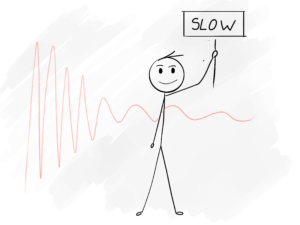
Basic skills
Here you will find a number of basic skills that can be used either by participants in a conversation or by facilitators. The skills are applicable and useful for almost all levels of dialogue.

Listening
Listening can de-escalate tension and is essential to creating a safe space for dialogue.
Listening is more than simply hearing and noting what another person says. It requires presence and empathy. In addition, it requires an attitude of non-judgement. Truly listening to another is an act of service and can change lives.
Read more

Mirroring
Mirroring is a skill that can be used by facilitators and by those participating in conversations or meetings. It involves saying back what you have heard – in a short, concise way – to the person who speaks. Mirroring helps to create clarity and openness and has the important function of slowing down a process when tension or conflict arises.
Read more

Summarising
Summarising involves briefly noting the topics of a conversation or part of a conversation. A good summary also highlights areas of agreement and disagreement. Summarising helps to keep the conversation on track, provides clarity and helps to slow the pace of the conversation when tension arises.

Naming the emotion
Summarising involves briefly noting the topics of a conversation or part of a conversation. A good summary also highlights areas of agreement and disagreement. Summarising helps to keep the conversation on track, provides clarity and helps to slow the pace of the conversation when tension arises.
Read more

Perspective questions
Perspective questions aim at providing a broader view of a particular issue. It is not uncommon in conversations for people to view a problem from their own point of view. These questions challenge the speaker to step away from their own viewpoint and to the problem from other angles.
Read more

Questions for elaboration
Asking questions that encourage others to elaborate, exemplify and explain what they mean, is a way for both participants and facilitators to create a safe space for people to express themselves. It helps to create a mutual understanding, safety and trust.
Read more
Exploratory questions
Exploratory questions aim at learning more about thoughts, ideas, feelings, values and beliefs. These are important when you need to discover what lies under the surface – that which is not being expressed in meetings, conversations and larger processes.

Slowing it down
This pattern is crucial to handling tension and conflict. It helps a facilitator or mediator to slow the conversation down and so reduce the risk of escalating tension. It links to specific skills that all contribute to creating greater safety by slowing the pace of a conversation.


